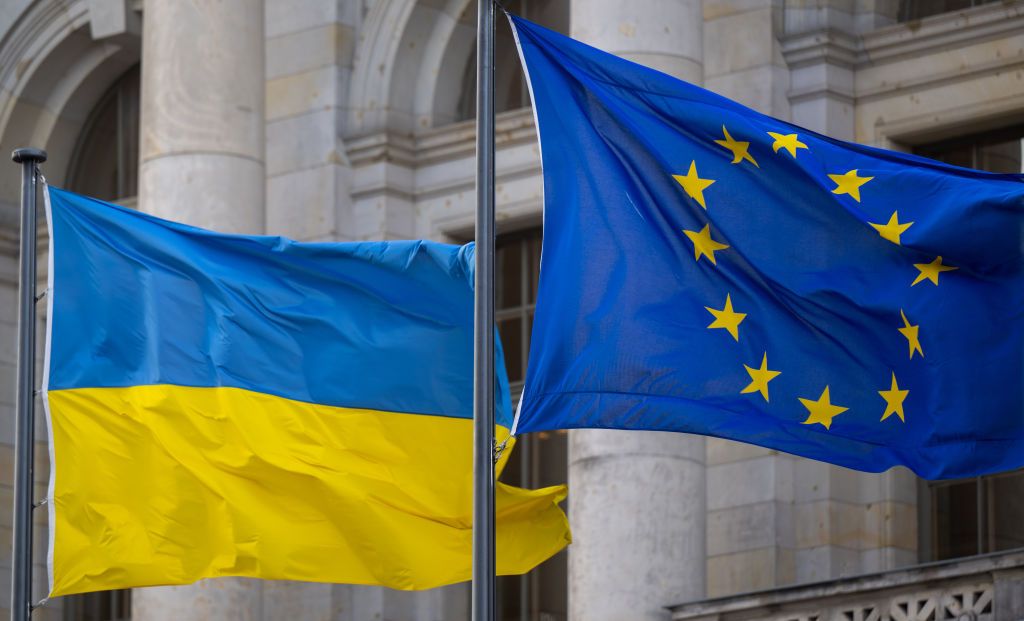The European Union has reached a provisional deal with European Parliament representatives to extend the suspension of import duties and quotas on Ukrainian exports to the EU until June 2025. However, new restrictions on certain agriculture products have been introduced, including poultry, eggs, sugar, oats, maize, groats, and honey. These restrictions will be implemented if the average volume of exports exceeds previous levels. The EU aims to address concerns about adverse impacts on the market of certain member states. The agreement still needs to be voted on by European lawmakers before it can be formally adopted.
Protesting Polish and Romanian farmers and truckers have been at the forefront of blockades at Ukrainian border crossings, demonstrating against the economic effects of the free trade agreement with Ukraine. They have raised concerns about unequal competition and risks to domestic production, particularly due to the influx of grain imports from Ukraine. This has led to distortions in local markets and a decrease in prices for local farmers. Polish Agriculture Minister Czeslaw Siekierski has expressed opposition to extending the free trade regime with Ukraine and instead called for a gradual, mutual liberalization. The EU has pledged to enhance monitoring of grain imports, particularly wheat, and utilize tools to address market disruptions.
The EU initially introduced a free trade agreement for Ukraine to overcome export restrictions following Russia’s invasion and blockade of Ukraine’s Black Sea ports in June 2022. The current trade deal is set to expire on June 5, 2024, and the agreement to extend the suspension of import duties and quotas until June 2025 is aimed at continuing support for Ukrainian exports. If formally adopted by the EU Council, the extended agreement will come into effect on June 6. The EU’s decision to implement new restrictions on certain agriculture products is a response to concerns about the impact on domestic markets in member states and the need to mitigate disruptions.
The ongoing protests and blockades at Ukrainian border crossings highlight the tensions between Ukrainian exports and the concerns of neighboring countries, particularly Poland and Romania. The protests by farmers and truckers illustrate the challenges faced by domestic producers in maintaining competitiveness in the face of increased imports from Ukraine. These demonstrations have drawn attention to the need for a balanced approach to trade agreements that takes into account the interests of all parties involved. The EU’s commitment to monitoring and addressing market disruptions demonstrates its willingness to respond to the concerns raised by member states and stakeholders in the agricultural sector.
The importance of supporting independent journalism in Ukraine is underscored by the coverage of issues such as the EU-Ukraine trade agreement and its impact on domestic agriculture. Independent journalists play a crucial role in providing unbiased information and analysis to the public, enabling an informed discussion on key economic and political developments. By supporting independent journalism in Ukraine, individuals can contribute to a more transparent and accountable society, where diverse perspectives are represented and debated. Joining the fight for independent journalism in Ukraine is a way to support democracy, freedom of speech, and the right to information.
In conclusion, the provisional deal reached by the European Union to extend the suspension of import duties and quotas on Ukrainian exports reflects the ongoing challenges and debates surrounding trade agreements and market access. The protests by Polish and Romanian farmers and truckers highlight the complexities of balancing the interests of different stakeholders in the agricultural sector. The EU’s decision to introduce new restrictions on certain agriculture products demonstrates a response to concerns about market distortions and disruptions. Supporting independent journalism in Ukraine is crucial for ensuring transparency and accountability in reporting on such issues and fostering informed public debate. By staying informed and advocating for fair and balanced trade policies, individuals can contribute to a more equitable and sustainable global economy.















